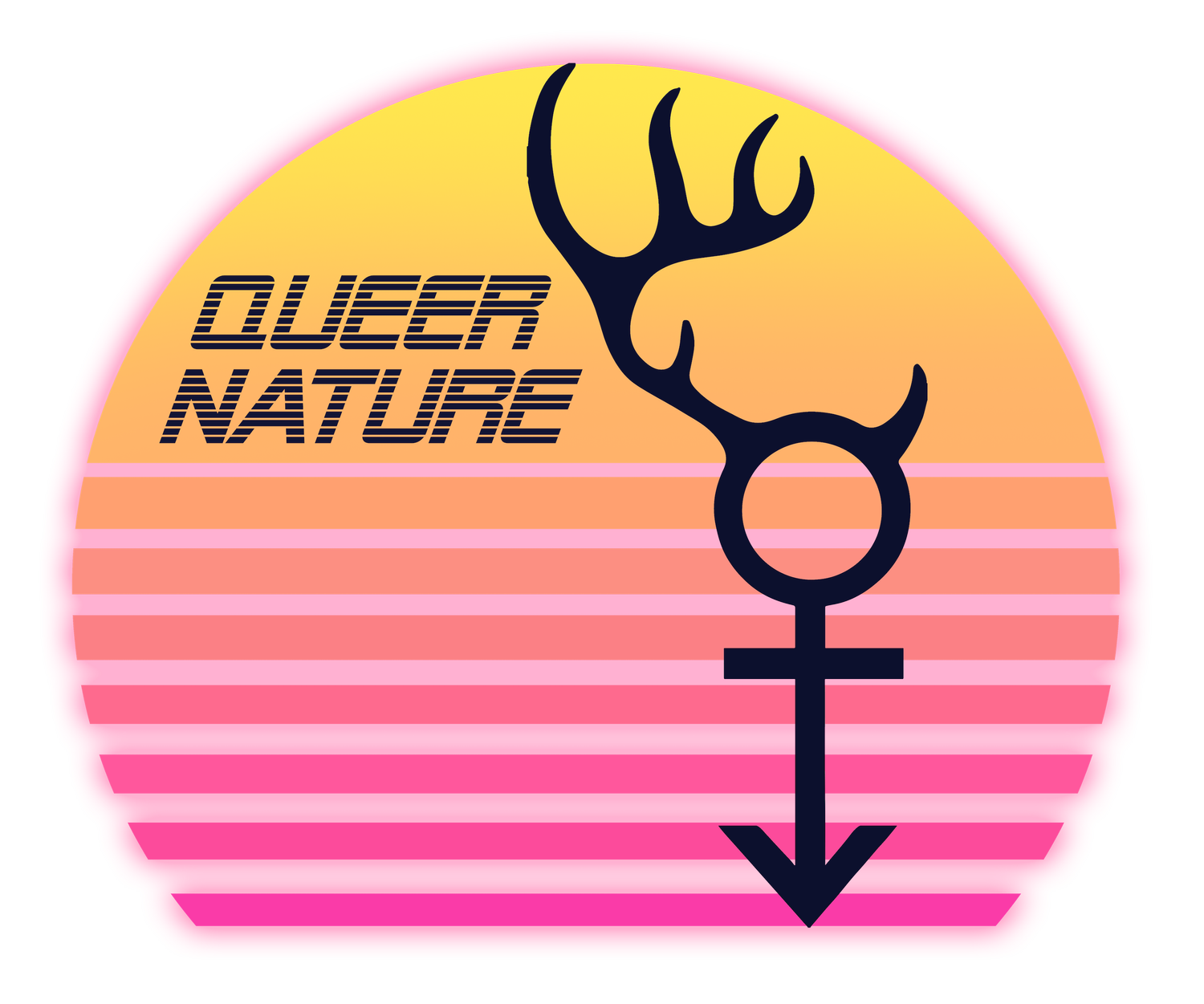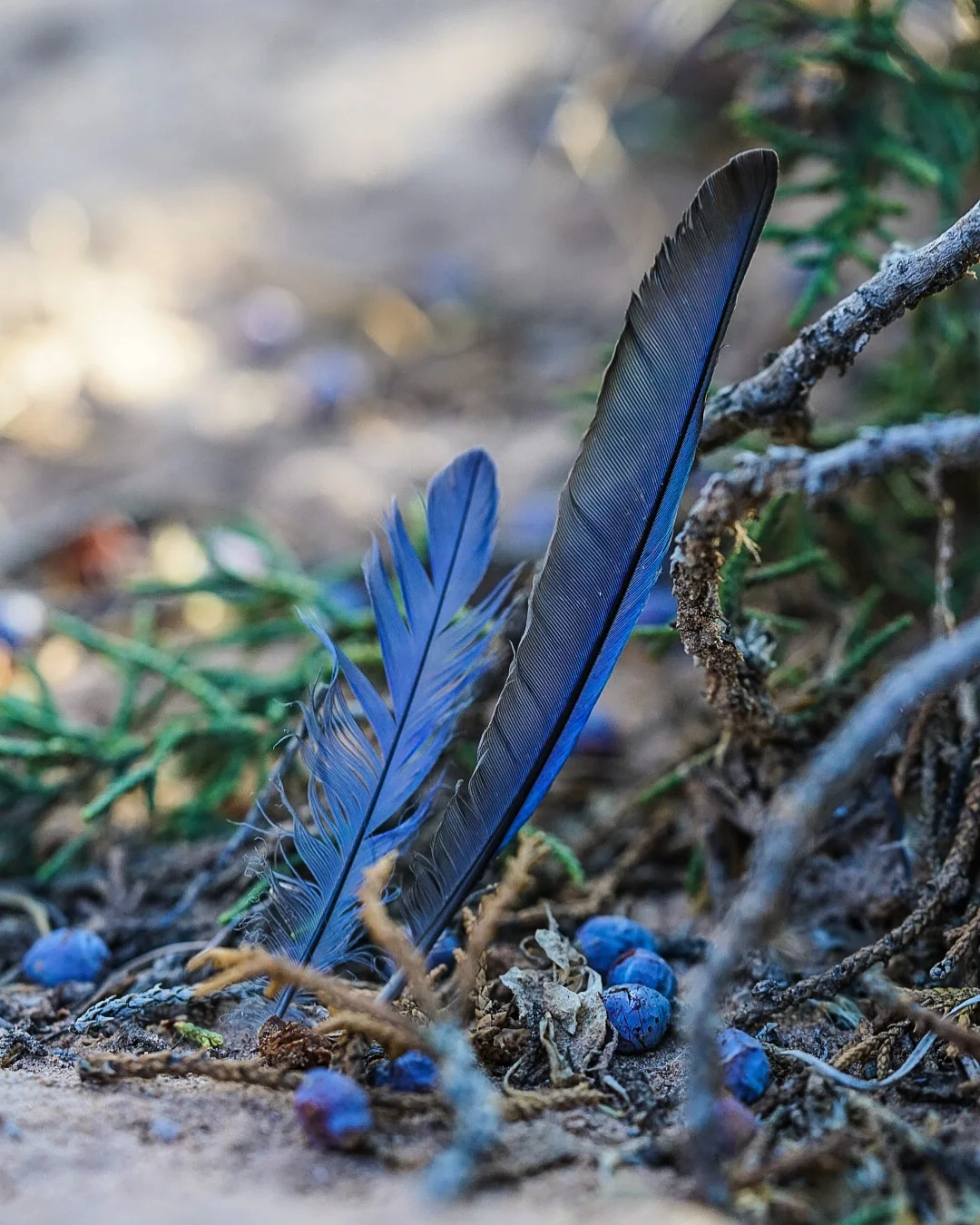As rites of passage guides, we know that the hardest challenge of the ceremony is not the severance, threshold or liminal space, but rather what comes after: incorporation. Incorporation means to bring into the body or to embody what one learned for their people during their initiatory fast on the land. What does incorporation mean living within a system that chooses which bodies get to thrive and targets others? What does incorporation mean with the history of a nation built of chattel slavery of black bodies and the genocide of First Nation peoples? How does one embody their vision with the implications that their skin color, ability and gender has?
Last August of 2018, we ran our inaugural Queer Mountain Quest (QMQ) through Rite of Passage Journeys with an incredible team dreaming into its creation for over two years. The co-guide team was Roz Katonah (they/them), Anna Schulman (she/her) and me (they/them). So Sinopoulos-Lloyd (they/them) was the QMQ fundraising director as well as the basecamp ceremonialist. This was a two-week backpacking trip on Snohomish, Klallam and Quileute territories for 13-18 year old two-spirit, nonbinary, trans and queer youth.
The majority of the youth found the QMQ through Queer Nature’s social media accounts where we bring in decolonial and anti-racist discourse in the fields of nature-connection, place-based skills, and rites of passage. The youth who came were white or white-passing teens from all over Turtle Island including so-called Canada. They chose to come due to feeling seen and represented by the guide team as well as by a desire to walk in right relationship with the history of colonial violence on the wild and urban landscapes.
To the guides’ surprise, several youth were the ones to initiate inquiring to know more about the First Nations of the place after our land acknowledgments. What I have come to know working with trans and queer youth—including at the School of Lost Borders’ inaugural Queer Youth Quest in 2017—is that the younger generation will always be a delightful and edgy surprise initiating intergenerational co-learning containers. These inquiries lit our fire as we realized that what we were preparing for as a guide team was being co-created before our eyes.
We delved deep into being in right relationship to ourselves, each other, our more-than-human kin as well as whose land we were on. There is so much depth of possibility for the land to hold these inquiries. If our conversations around diversity, equity, inclusion as well as decolonization remain intraspecies (humancentric), I frankly am concerned. Only in collaboration with the land will we be able to fully explore the depth of trauma and wounding we must go into to truly explore power, privilege and oppression. This is something that we continue to flesh out in the Ecology of Power & Privilege curriculum in collaboration with Youth Passageways. Kruti Parekh (she/her), Darcy Ottey (she/her) and I are deeply exploring decentering humancentric spaces and bringing our more-than-human kin as potential allies and accomplices in our anti-oppression journey towards co-liberation. Of course, we must also be confronted with the discomfort of our own areas of privilege with interspecies reflection by our BIPOC (black, indigenous, people of color) community members especially within the rite of passage communities. There is a balance between intraspecies and interspecies conversations that has the potential of remediating the impact of colonial and ecocidal violence.
Photo from the Queer Mountain Quest
This is why the QMQ guide team decided to discuss white supremacy during our incorporation. It is necessary to do so for our youth in the current political climate we are in. By the epic coastline, we lit candles and made an altar where we read co-liberatory poems by Audre Lorde, a black lesbian abolitionist. As we sat to have our discussion on incorporation, we began by reading “A Letter to White Queers, A Letter to Myself”, a poem by a nonbinary white poet, Andrea Gibson (they/them). The poem was a reminder that the queer community needs to be intersectional and remember to actively fight anti-blackness and anti-indigeneity as white or white-passing folks in the LGBTQ2IA+ community. We opened a council to integrate the gravity of the longest part of the ceremony: incorporation. This dialogue shook the youth as a reminder of what world they are walking back into with their necessary gifts that are a healing balm and regenerative disruptive force to the dominant ecocidal culture.
In forming the QMQ guide team, we decided to center and co-empower guides who hold intersectional identities within our queer community. When one holds multiple locations of oppression (class, ability, race, gender, sexual orientation, etc.), they are more impacted members within our communities. An example is our trans black community members have a disproportionately higher likelihood of transphobic murder compared to those being trans and white. Or being a darker-skinned and indigenous-featured Latinx person with citizenship gets profiled significantly more than a lighter-skinned Latinx mestizo without citizenship. Who in our communities are being impacted by oppression on an institutional level? In order for co-liberation to be actualized, we need to center the most impacted in our communities. We need to find ways to move aside and be behind someone as a gesture of support with their consent.
As the darkest member of the Wilderness Guides Council, I hardly ever see black and/or indigenous guides of color without white-passing privilege. It is an isolating experience as an indigenous guide, especially with the word “wilderness” reverberating genocide and the invisibilization of our existences. The concept of wilderness is a foundational concept that perpetuates racism. John Muir, the father of National Parks, was explicitly racist against First Nation folks as well as black communities and promoted the eradication of Ahwahnechee tribal members to preserve the “pristine wilderness” of Yosemite. Edward Abbey, author of Desert Solitaire, was avidly disturbed by indigenous-migrants and was an early advocate for a militarized border on the lands he loved.
I wonder as “wilderness” guides, how can we each walk in right relationship while engaging in the complexities of white supremacy within the lands we guide on? For First Nations, land and people are the same. Therefore, land can never be an apolitical place. Leadership is a reproduction of culture. If that is the case, I wonder what culture are we reproducing as guides? Who will you make sure takes your guide seat? How can we all create opportunities for those who do not look like us and are systematically targeted to take the guide seat? How do we make sure that there are more black and brown faces in our wilderness guides networks without tokenizing?
Right now in the Sonoran desert, there are children, adults and elders nonconsensually fasting in the desert praying that they will make it through the ordeal of crossing the border. There are black bodies being shot at in public by law enforcement without any justice. Native communities have the highest rates of suicide in this country. There are young generations of white youth who are being initiated into white supremacy. If we are bringing our gifts back for our people, we must include all bodies and center those systematically targeted. Incorporation in this fragmented world must include looking at our power, privilege and oppression and how it informs our roles as we live into the initiation our species is moving through.
Note: Originally published in Circles on the Mountain Issue #24 (2019)


